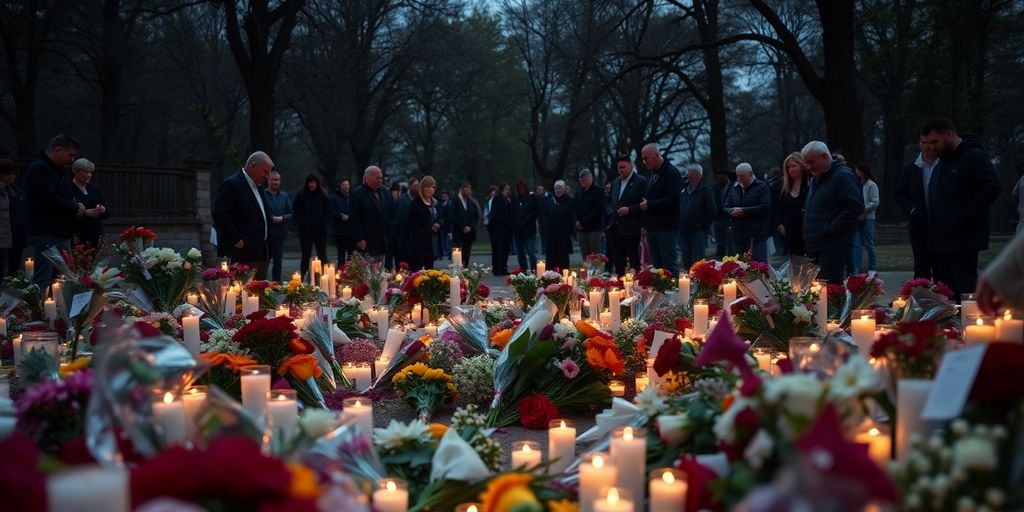A tragic mass shooting in Cetinje, Montenegro, has left the nation in mourning after a gunman killed 12 people, including two children, before taking his own life. This incident has reignited discussions on gun control in a country known for its deep-rooted gun culture.
Key Takeaways
- A gunman killed 12 people in Cetinje, including two children, before committing suicide.
- The shooter used an illegal firearm, raising concerns about gun control in Montenegro.
- The government is considering a total ban on weapons in response to the tragedy.
- This incident marks the second mass shooting in Cetinje in less than three years.
Overview of the Incident
On Wednesday, a 45-year-old man named Aco Martinović opened fire in multiple locations in Cetinje, a town with a population of around 17,000. The shooting spree began after a bar brawl, leading Martinović to retrieve a 9 mm gun from his home. He targeted several individuals, including the bar owner, his children, and even his own family members.
The attack resulted in the deaths of seven men, three women, and two children, with four others sustaining serious injuries. Following the rampage, Martinović fled but later shot himself when cornered by police.
Government Response
In the wake of this tragedy, Montenegro’s National Security Council convened an emergency meeting to address the rampant issue of illegal firearms in the country. The government is considering a new gun law aimed at confiscating illegal weapons, as Montenegro ranks sixth in the world for illegal firearms per capita.
Prime Minister Milojko Spajic stated, "We must ask ourselves after this who should be allowed to have guns in Montenegro." This sentiment reflects a growing urgency to reassess gun ownership laws in light of the recent violence.
Public Reaction
The shooting has sparked outrage and grief among the citizens of Montenegro. Vigils were held across the country, with hundreds lighting candles in memory of the victims. Many residents expressed their anger towards the authorities for failing to prevent such tragedies, especially given the previous mass shooting in August 2022, which also occurred in Cetinje.
Mira Škorić, a retiree from Podgorica, lamented, "I can’t believe that we failed so much as a society. We failed as people too." This sentiment echoes the frustration felt by many who believe that the government has not done enough to ensure public safety.
Historical Context
Montenegro has a long-standing gun culture, with many citizens owning firearms for personal protection or hunting. However, the recent spate of violence has raised serious questions about the implications of this culture. The previous mass shooting in 2022, which resulted in 10 deaths, highlighted the need for a more robust approach to gun control and public safety.
Conclusion
As Montenegro grapples with the aftermath of this horrific event, the call for stricter gun control measures is louder than ever. The government faces the challenge of balancing the rights of gun owners with the need to protect its citizens from further violence. The coming weeks will be crucial in determining the future of gun legislation in Montenegro, as the nation seeks to heal from this tragedy and prevent similar incidents in the future.
Sources
- Montenegro mourns after gunman kills at least 12 people before shooting himself, VOA – Voice of America English News.
- Montenegro to tackle gun control after mass killing left 12 dead, VOA – Voice of America English News.






